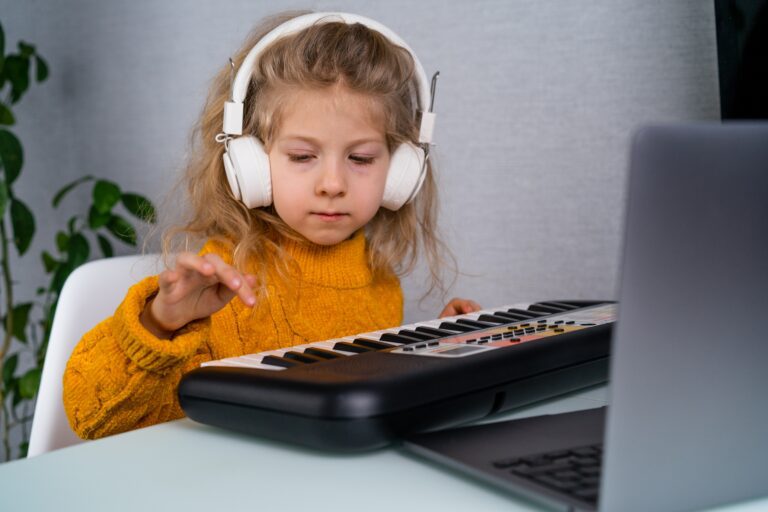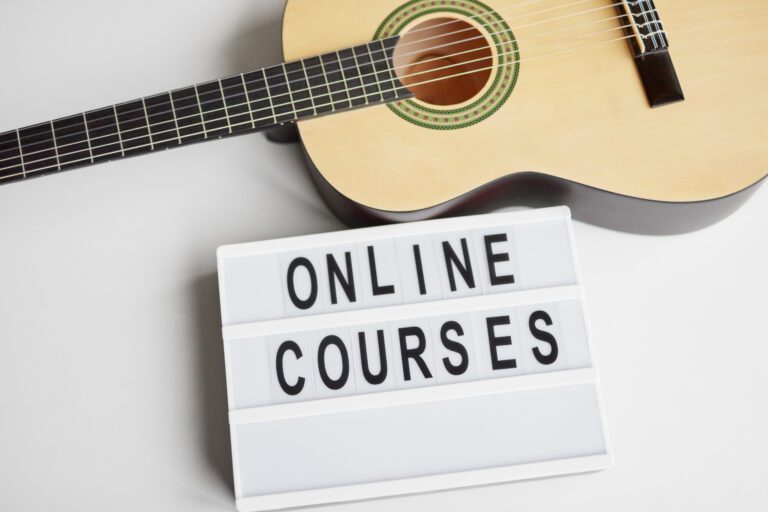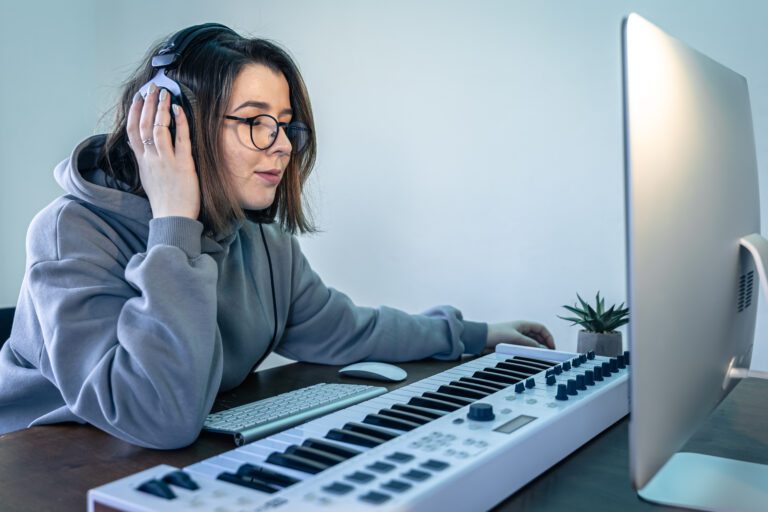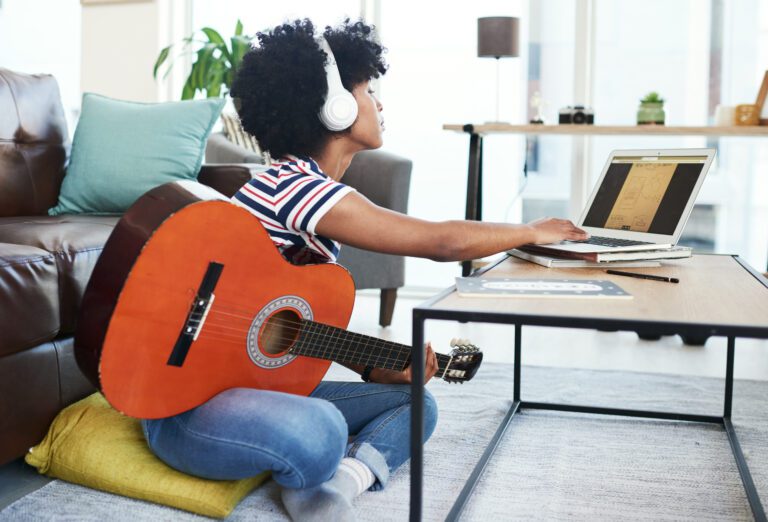The Surprising Link Between Music and Memory
Music has an extraordinary ability to evoke emotions, transport us to past experiences, and even improve cognitive function. A simple melody can bring back childhood memories, recall a long-forgotten face, or even enhance our learning abilities. But why does music have such a profound impact on Music and memory connection? How can we harness it to improve brain function and recall information more effectively?
In this blog, we’ll explore the science behind music and memory, the psychological and neurological effects of music on recall, and practical ways to use music for cognitive enhancement. Whether you’re a student, a musician, or simply curious about the mind’s capabilities, this guide will unlock the secrets of how music shapes our memories.
1. The Science Behind Music and Memory

How the Brain Processes Music and Memory
Music is processed by multiple areas of the brain, making it a powerful tool for memory recall. Unlike spoken language, which primarily activates the left hemisphere, music engages both hemispheres of the brain simultaneously. This dual activation strengthens neural pathways, making memories tied to music more accessible.
The hippocampus, the part of the brain responsible for memory formation, plays a crucial role in our response to music. Research shows that listening to familiar music triggers activity in the hippocampus, reinforcing past experiences and emotions. This is why a song from your teenage years can instantly bring back memories of a first dance, a road trip, or an important milestone in your life.
Dopamine and the Reward System
Music also activates the brain’s reward system, releasing dopamine—a neurotransmitter associated with pleasure, motivation, and learning. This chemical release strengthens our emotional connection to music, making memories associated with certain songs more vivid and long-lasting.
2. Why Does Music Trigger Memories So Strongly?

Music as a Memory Cue
When we listen to music, we’re not just hearing sounds—we’re experiencing emotions, reliving moments, and engaging multiple sensory pathways. Music provides a structured and repetitive pattern, which reinforces memory recall more effectively than isolated words or numbers.
The “Music-Evoked Autobiographical Memory” (MEAM) Effect
MEAM refers to the phenomenon where hearing a familiar song brings back vivid personal memories. A study in Nature Neuroscience found that individuals who listened to songs from their youth could recall personal memories in great detail.
3. How Music Enhances Cognitive Function and Learning

The Mozart Effect: Can Music Make You Smarter?
The “Mozart Effect” suggests that listening to classical music can enhance cognitive abilities, particularly spatial reasoning and problem-solving skills. Although its impact on overall intelligence remains debated, studies confirm that music improves focus, concentration, and retention.
Music and Language Learning
Music and memory connection can improve language acquisition and verbal memory. Singing along to songs in a foreign language helps with pronunciation, grammar, and vocabulary retention. Many language learners find that setting phrases to music makes them easier to memorize.
4. Music Therapy: Healing the Brain Through Sound

Music and Dementia
Patients with Alzheimer’s and dementia often struggle with memory loss, but music and memory connection therapy has shown remarkable results in helping them recall forgotten moments and reconnect with loved ones. Familiar songs from their past can trigger memories and improve communication.
Music for Stress and Anxiety Reduction
Listening to slow, calming music reduces cortisol levels (the stress hormone), enhancing memory retention and improving mental clarity.
Music and Neuroplasticity
Neuroplasticity refers to the brain’s ability to form new neural connections. Learning an instrument strengthens these connections, enhancing cognitive flexibility and protecting against cognitive decline.
5. How to Use Music to Improve Memory and Learning

Create Memory-Boosting Playlists
- Use background music while studying or working.
- Choose instrumental or classical music to avoid distractions.
- Associate specific songs with particular study topics for better recall.
- Listen to foreign language songs and sing along.
- Set vocabulary words to melodies.
- Learn to play an instrument.
- Practice singing or humming to reinforce memory connections.
- Listen to slow-tempo music before bed.
- Engage in binaural beats, which synchronize brain waves and improve relaxation.
6. Real-Life Stories: Music’s Incredible Power on Memory

Gabrielle Giffords’ Recovery
Former U.S. Congresswoman Gabrielle Giffords lost her ability to speak after a brain injury. Through music therapy, she was able to regain speech by singing words before speaking them.
Elderly Patients in Nursing Homes
Many dementia patients can recall lyrics and melodies from their youth, even when they struggle with basic conversation. Music therapy helps them reconnect with their past and communicate better with caregivers.
Students Using Music for Studying
Students who listen to music while studying often find that their focus and retention improve, especially when using classical or instrumental music.
7. The Future of Music and Memory Research

AI and Personalized Music Therapy
With advancements in artificial intelligence, AI-generated playlists tailored to individual cognitive needs are being developed to enhance brain health.
Music and Virtual Reality (VR)
VR combined with music is being used to help patients with PTSD recall and reframe traumatic memories in a safe environment.
Music as a Preventative Tool for Cognitive Decline
Ongoing studies explore how lifelong engagement with music may reduce the risk of Alzheimer’s and other neurodegenerative diseases.
8. Conclusion: Unlocking the Full Potential of Music and Memory
Music and memory connection is more than just a source of entertainment—it is a powerful cognitive tool that enhances memory, boosts learning, and supports emotional well-being. Whether you’re a student looking to improve recall, an older adult aiming to keep your mind sharp, or someone recovering from cognitive impairments, music can help unlock the full potential of your brain.
By incorporating music into daily life, we can enhance our memory, reduce stress, and improve overall brain health. So the next time you put on your favorite song, remember: you’re not just listening to music—you’re activating your brain’s most powerful memory enhancer.
Related Blogs
At The Mystic Keys, we believe that mastering the piano practice structure is a journey that combines passion, discipline, and the right guidance. Whether you’re a beginner or an advanced pianist, a structured practice routine is the cornerstone of progress.
At The Mystic Keys, we emphasize the importance of proper finger placement as the foundation for any pianist’s journey. Whether you’re just starting or refining your technique, mastering finger placement will not only improve your speed and precision but also prevent strain and fatigue.
A well-set piano greatly enhances the worship experience, making the environment more inviting and spiritually enriching. To achieve this, you must focus on both technical and practical aspects, ensuring the instrument seamlessly complements the service. Below is a step-by-step guide on how to effectively set a piano for worship.








